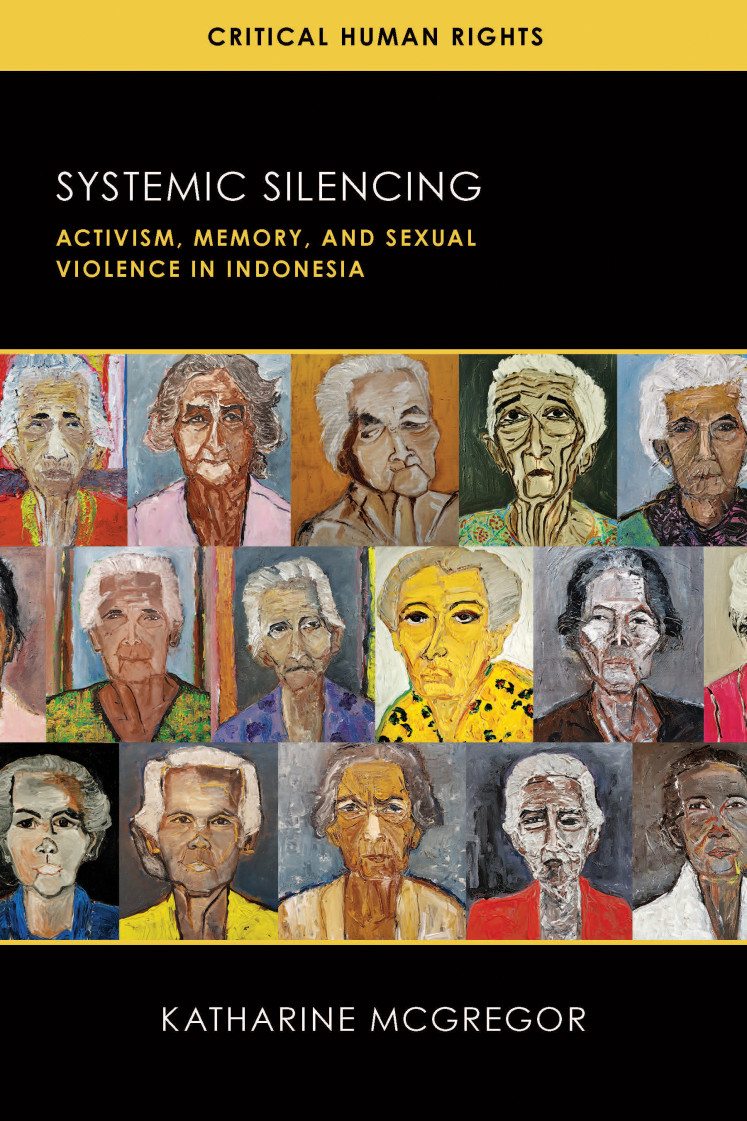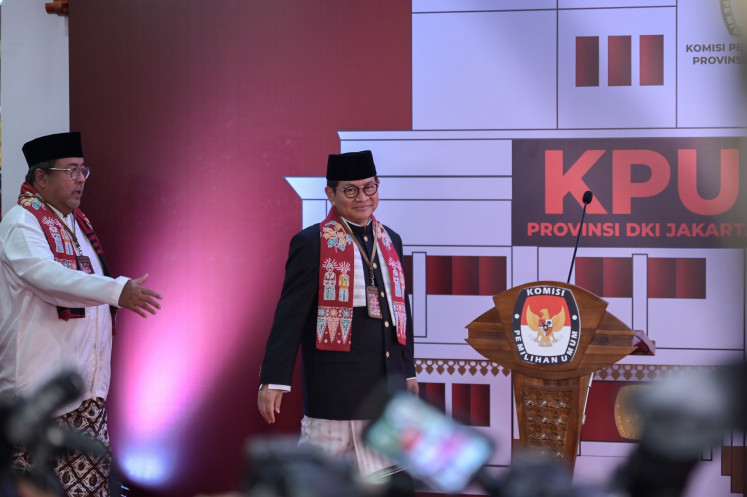‘Systemic Silencing’: A look back at Indonesian survivors of enforced prostitution
Systemic Silencing: Activism, Memory, and Sexual Violence in Indonesia by Katharine E. McGregor focuses on a subset of rakyat kecil (commoners), that is, lower-class women from rural towns and villages, mostly in Java, who played a significant role during the period of Japanese occupation in the early 1940s but whose presence was seemingly visible only to their oppressors.
Change text size
Gift Premium Articles
to Anyone
 Systemic Silencing: Activism, Memory, and Sexual Violence in Indonesia by Katharine E. McGregor, The University of Wisconsin Press, 2023. (Katharine E. McGregor) (Katharine E. McGregor/-)
Systemic Silencing: Activism, Memory, and Sexual Violence in Indonesia by Katharine E. McGregor, The University of Wisconsin Press, 2023. (Katharine E. McGregor) (Katharine E. McGregor/-)
T
hey say that history is written by the victors. This is no truer than when we think about colonialism and the way its effects have been recorded, or when we think about the power that oppressors wield, which enables them to manipulate structures and systems so that it is their stories that are told and not those of their victims.
For the average Indonesian, we can see this in the way discussions are framed around the 1965 communist purge that gave birth to Soeharto’s New Order regime, or how narratives are taught and stories passed on about the selfless acts of freedom fighters and national heroes.
These topics are typically learned by rote at school as part of the curriculum, but the less glamorous side of history receives much less attention. Discussions about the part played by Indonesia’s elite in perpetuating systems of oppression imposed by colonial rulers, for example, or the role of deep-seated patriarchal systems in determining the fate of rakyat kecil (commoners) at the time, are topics that hardly get a mention.
Systemic Silencing: Activism, Memory, and Sexual Violence in Indonesia by Katharine E. McGregor focuses on a subset of rakyat kecil, that is, lower-class women from rural towns and villages, mostly in Java, who played a significant role during the period of Japanese occupation in the early 1940s but whose presence was seemingly visible only to their oppressors. Rigorous researched in an academic style, the book takes readers on a journey spanning almost eight decades as McGregor demonstrates the plight of Indonesian women who were forced into systematic prostitution and later fought a long battle for justice with little to no success.
During its colonization of Indonesia and other parts of Southeast Asia, Japan imposed a system of enforced military prostitution based on the idea that providing “comfort women” – that is, sex slaves – was crucial to satisfying the sexual needs of soldiers and preventing the rape of local women, which would be a dishonorable thing for a ruling power to do. In her book, McGregor describes the complex web and layers of race, culture and economic status that enabled this system and subsequently sealed the fate of unsuspecting, financially destitute women typically “recruited” through deception and coercion.


















